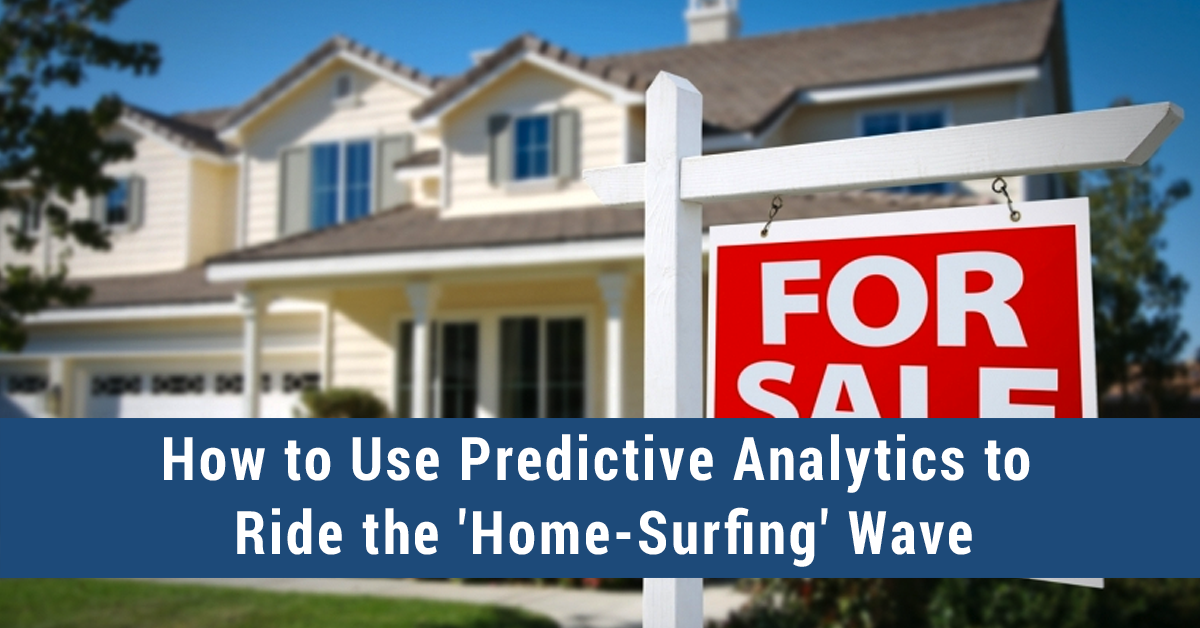Entrepreneur | How Entrepreneurs Can Use Predictive Analytics to Ride the House-Surfing Wave
Apply now to be an Enterpreneur360™ company and let us tell the world your success story. Get Started »
When Zillow launched its website and Zestimate system a decade ago, home-buying veered onto a new track: Consumers felt empowered with the abundance of information they were gaining about the value of their homes, and about what it means to own one.
Related: How to Make Predictive Analytics Work for Your Business
Not that the information hadn’t been available before that — it was — but home information suddenly became sexy. Almost single-handedly, Zillow created a new part-time activity: online home surfing.
Today, the company’s market cap is more than $4 billion; and, according to Google, the word “Zillow” is now more widely searched than “real estate.” The numbers bear this out: Earlier this year, a massive 166 million unique users flocked to Zillow to discover the latest information on homes for sale, home prices, buying options and other trends.
The availability of any and all data has helped Zillow and similar sites enhance the home-buying experience. Real estate entrepreneurs — meaning the people running real estate agencies and brokerages — would be wise to examine this practice and use it to amplify their own business practices.
The reinvention of an industry
Originally, property information was provided largely on geography-based prospect farms, with multiple-listing services and brokerages providing basic information such as numbers of bedrooms and baths, square footage and lot size. But “property information” has since changed dramatically.
Today, we have the term “property porn,” describing people’s desire for better and more robust information. In other words, much more goes into a home purchase than just physical layout. Commute time, nearby school districts and average utility costs all factor in.
Available information of this ilk is being put to good use by customers and at the same time is helping real estate entrepreneurs contribute to an industry boon. According to Gartner, the business intelligence market will be worth as much as $136 billion by 2020. Some even say that the home-buying process is undergoing a once-every-50-years redesign, as technology takes over.
Or has it? A quick reality check still affirms that home-buying continues to be the most expensive and complicated transaction most consumers will ever make. So, simply having access to more information doesn’t mean consumers will correctly understand and interpret the data they see. Real estate entrepreneurs, too, must gain a better understanding of this data to make it useful for customers.
So, where does that leave us?
The intelligent use of analytics
From the character of Spider-Man comes this quote: “With great power comes great responsibility.” Predictive analytics comes with a similar caveat.
The big question real estate entrepreneurs should ask themselves is, How do we adapt and change our processes in order to continue serving home-sellers and buyers in a smarter manner while still offering first-rate personal-customer service? To answer the question, real estate leaders should wrap their heads around the following pieces of advice when they use predictive analytics:
1. Fortify the foundation.
Combining current profiles with time-sensitive data can refine the voice of, and help create an accurate and predictive model of, future business operations.
Certainly, predictive analytics can drive sales, but its data can also contribute to an improved working environment. In a survey report by Marketwired, 91 percent of respondents said they were totally committed to using predictive marketing to define their companies’ future.
Real estate entrepreneurs can also apply the data, analyzing customer behavior to hire the kinds of brokers and agents who will appeal to those buyers. Predictive data can even help a brokerage decide on where to expand its reach.
2. Draw up a blueprint.
The focused evaluation that predictive analytics provides helps companies become more efficient. Instead of relying on a hunch or past trends, businesses can reach data-based insights.
Purposeful data also helps marketers increase their assessments of a consumer’s purchasing tendencies and improve customer targeting. Complex analysis allows businesses to receive input from several sources, such as business applications, current market trends and customer opinions from social networks.
The Zestimate is a prime example. The data involved gives customers the necessary information they need to shop. In turn, real estate leaders can use this information to arm agents with the necessary tools to close the sale.
Related: 4 Marketing Tools That Are Shaping the Industry
3. Entertain your guests.
Another benefit predictive analytics provides is a road map to better understand consumers’ needs and wants. The data allows a brokerage to raise response rates, provide focused service and identify product loyalty. ZipRealty.com, for example, uses predictive data to determine users’ initial and repeat visits to its website, allowing for a more focused outreach approach.
Related: 7 Signs That You’re Getting Customer Service Right
The point, of course, is to plumb the kind of in-depth data that gets to the core of what customers want. Through predictive data, real estate entrepreneurs can get a fuller picture of brokers and agents. They can customize the home-buying experience and become a go-to destination for the ideal home.
Original article can be found here on Entrepreneur.



